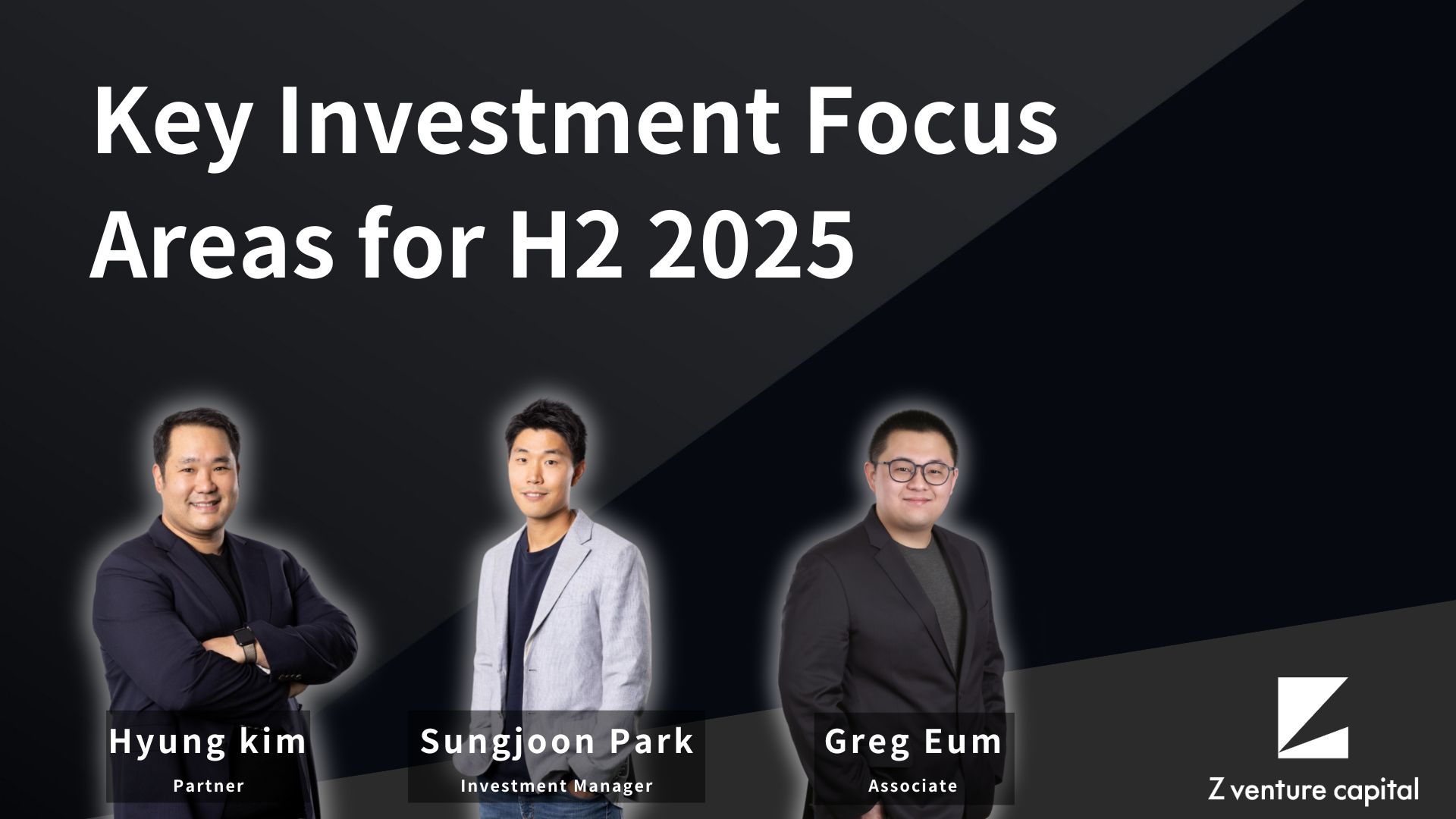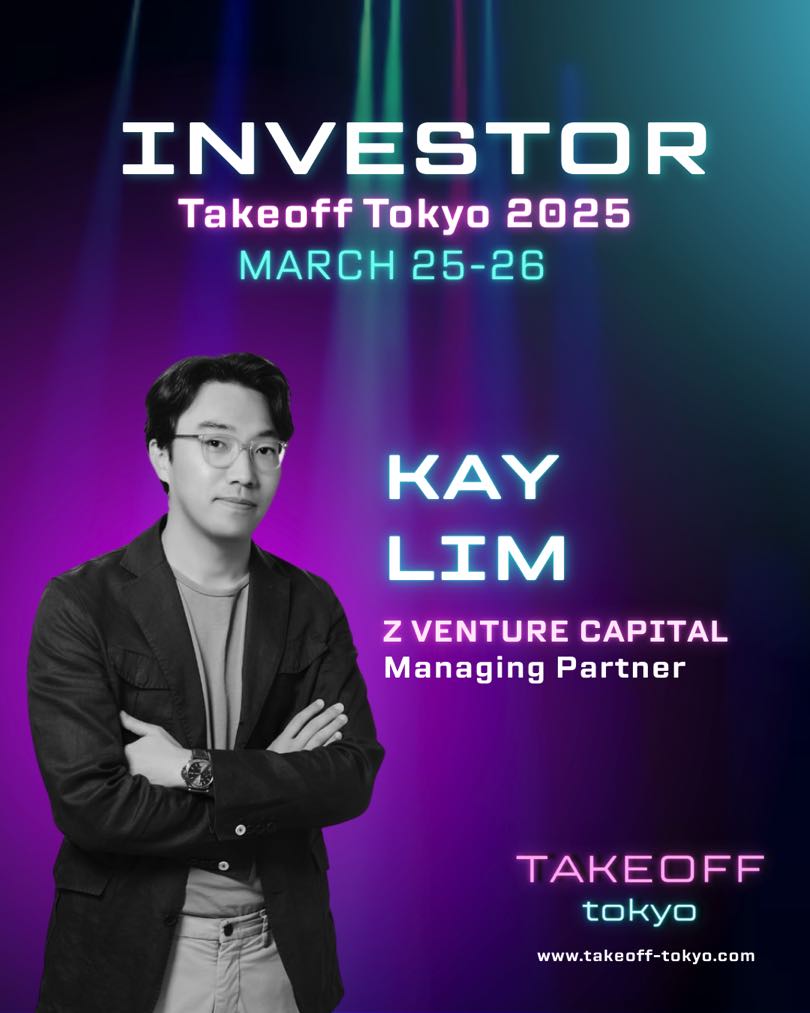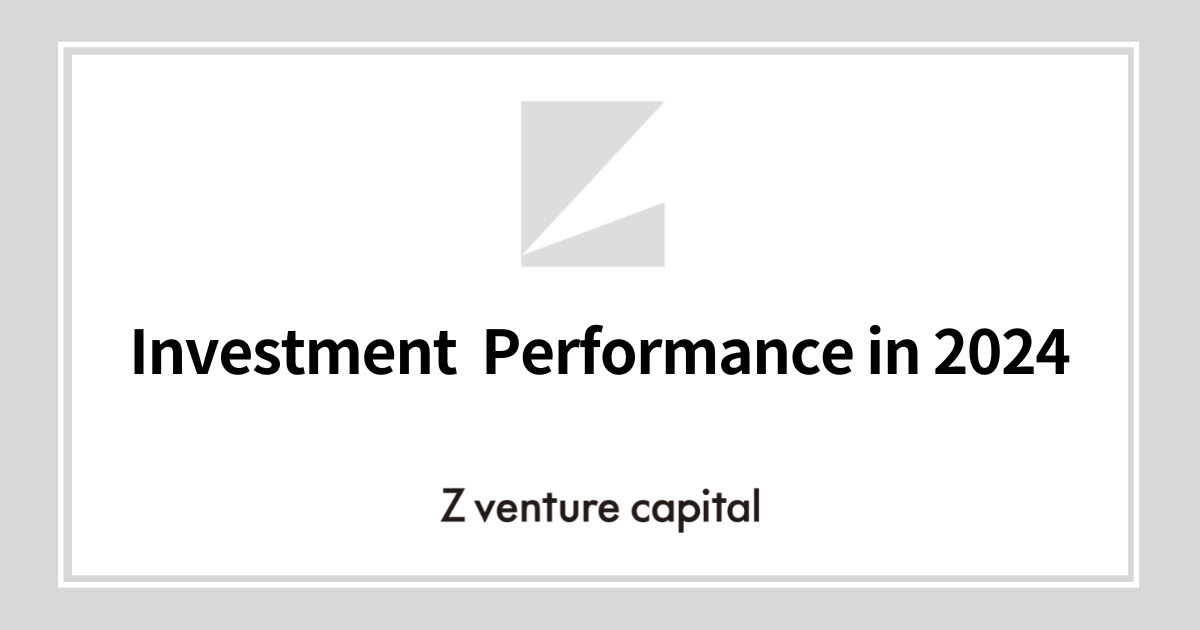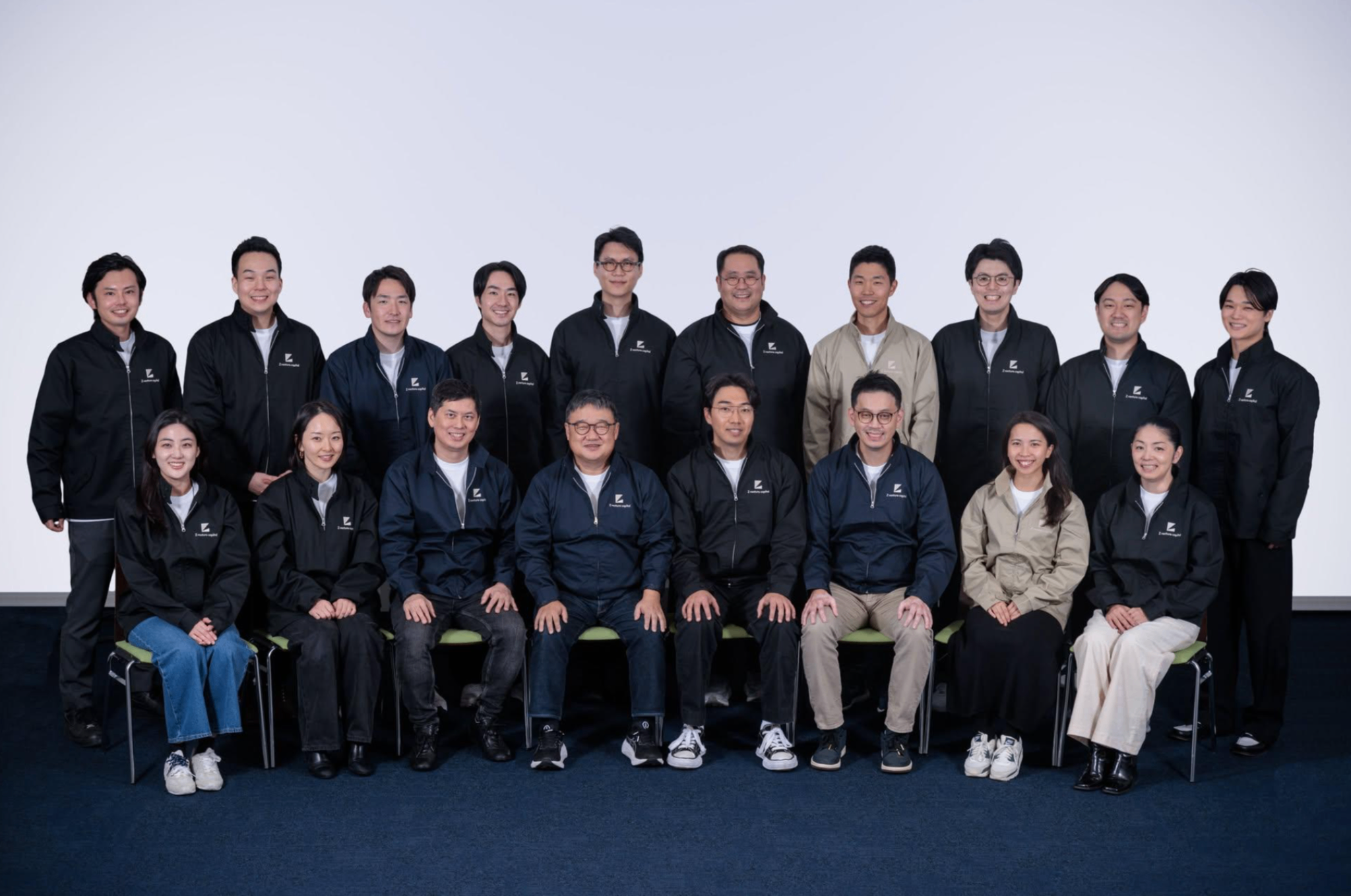
Key Investment Focus Areas for H2 2025 / USA
In January 2025, Z Venture Capital (ZVC) launched its second fund—ZVC Fund II—with a total size of approximately 30 billion yen. Within just six months, we’ve made around 20 new investments through the fund, spanning our key focus areas such as AI, media, commerce, and fintech. We’ve also begun actively investing in deep tech, including startups in the space sector.
So, where are ZVC's investment members seeing the most potential right now? What themes are we doubling down on? In this new column series, “Key Investment Focus Areas for H2 2025,” our team members from Japan, Korea, and the U.S.—ZVC’s core hubs—will share the trends and sectors we’re most excited about heading into the second half of the year. We hope this series leads to new conversations and connections with startups around the world. Following Japan, this second installment features insights from the USA.

“Empowering Humans in the Age of AI”
The most transformative AI companies in the next decade won’t aim to replace humans - they’ll aim to amplify human creativity and expertise and protect them. As AI becomes a foundational layer across industries, our investment thesis centers on startups that empower individuals, scale domain-specific knowledge, and protect the integrity of human work in the new AI-native era.
While today’s AI models are trained on massive public datasets - learning from the past to automate the present - real innovation stems from human creativity, judgement and lived experience. We focus on founders building platforms that are human-first in design, AI-native in architecture, and aligned with a future where human and machines collaborate meaningfully.
・AI-native platform in Media & Entertainment:We support startups helping creators reimagine storytelling and content production through AI, while preserving emotional core of human creativity. We’re excited by platforms that remove technical barriers and enable individuals to create original IPs, characters, and interactive experiences with ease.
・Creator and Expert Economy Infrastructure:AI can access vast data, but human bring contextrual depth and real-world insights. We seek platforms that transform individual expertise into scalable products - including vertical AI tools for professionals, solo entrepreneur enablement, and marketplaces that unlock the long tail of human knowledge.
・“Human-in-the-Loop” infrastructure:As AI agents begin to interact autonomously across systems, human oversight is more critical than ever. We invest in infrastructure that governs agent coordination, validates autonomous actions and embeds human checkpoints in critical loops ensuring human remain the source of final judgement in an agentic ecosystem.
・Digital Identity, Security and Trust & Safety Layers:As synthetic content scales, authenticity becomes scarce and valuable. We believe essence of infrastructure for content provenance, creator opt-out, IP projection and digital self-sovereignty defending human authorship in a world of new AI.
AI can scale data and computation - but only humans scale meaning. We invest in the founders ensuring that AI serves human purpose, not the other way around.

“AI powered reinvention for the rest of the world”
A growing area of attention is forming around companies that are not layering AI onto legacy industries, but rebuilding them entirely — using AI agents, redesigned workflows, and vertically integrated operations. These companies tend to serve the global majority: individuals and sectors historically underserved by traditional software and digital tools.
While much of the current AI wave is designed to improve productivity for desk-based professionals, this focus represents only a small slice of the global workforce. In contrast, industries employing billions of people remain largely untouched by modern software and continue to operate with significant inefficiencies.
Within these industries, software adoption has often been slow not due to lack of solutions, but due to workflows that are deeply fragmented or culturally resistant to change. As a result, a new generation of startups is taking a different approach: instead of selling AI into broken systems, they are building AI-native businesses from the ground up — designed to own the full value chain and run on automation at their core. Couple of examples as below:
・In construction, new entrants are forming vertically integrated general contractor models, embedding AI to handle bidding, procurement, and inspection workflows — bypassing outdated project management tools.
・In logistics, fleet-based companies are using AI to manage routing, dispatch, and customer service through autonomous coordination layers, rather than offering standalone SaaS to incumbents.
・In blue-collar education, lightweight AI tutors are being deployed via mobile-first experiences to train frontline workers directly — often outside of traditional institutions or certification programs.
It is expected that some of the most transformative companies of the next decade will emerge by combining AI-native automation with vertical ownership and operational expertise. These ventures may not resemble traditional tech firms; rather, they may look like reengineered institutions — built from scratch to serve a broader population with greater precision, reach, and accessibility than ever before.

Backing the Future of Games: Studios, Infrastructure, and the Rise of Social-Driven Worlds
We're focused on two major themes in interactive entertainment: next-generation gaming studios and the critical infrastructure around them, particularly AI tools and social platforms. While overall gaming startup funding has contracted, with only about $627 million globally so far this year, engagement remains strong, with over 190 million Americans playing games and spending more than $57 billion in 2023. We believe this is an ideal moment to lean into underpriced, high-upside opportunities in the space.
The economic model for gaming is shifting. Massive AAA budgets are increasingly unsustainable, and the next generation of successful studios will be leaner, more creative, and deeply community-centric. At the same time, foundational shifts in AI and digital social behavior are changing how games are built and played. As generative AI reshapes content workflows and players expect richer, more personalized worlds, the tools behind the games are becoming just as critical as the games themselves.
Studios are moving beyond traditional game development toward building long-lived entertainment platforms. Titles like Clair Obscur: Expedition 33 and Palworld prove that smaller teams can achieve breakout success through strong IP, mod support, and active community engagement. We’re particularly excited by studios that enable player-generated content, bridge multiple media formats, or experiment with narrative-driven live ops.
Furthermore, investment is rapidly flowing into AI-native tools for procedural world-building, NPC intelligence, and in-game testing automation. These tools are making smaller teams more competitive and unlocking novel gameplay mechanics. Social layers are also evolving. Platforms like Discord and Roblox show how critical networked experiences are for gamers. We’re watching closely for new social platforms and creator monetization layers that natively integrate into games rather than sit outside them.
We believe the most important games of the next decade will be persistent, creator-powered, and socially embedded. We’re also closely tracking how adjacent industries, from music and fashion to education and wellness, are beginning to blend with interactive game experiences, creating new cultural and commercial frontiers.
 Share
Share Share
Share Share
Share


